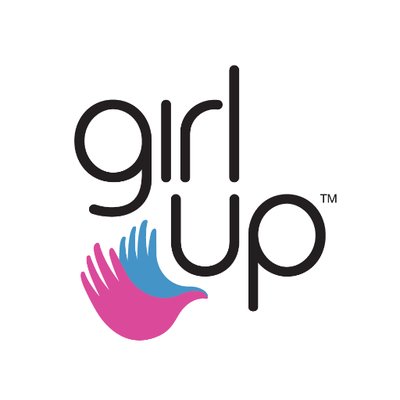
Girl Up’s mission is to inspire girls and women to greatness, advancing their skills, opportunities, and right to be leaders. In this article, we look at the organization’s history and the important role it serves, providing mentorship for girls around the world and helping them access the opportunities they need in order to thrive.
Even in developed nations, gender inequities still exist.
Women and men are not equal, even in the developed world. According to a feature by The Wall Street Journal, women remain vastly underpaid in comparison with their male colleagues in over 400 occupations in the United States today. In the US, the average female employee earns approximately 22 percent less than her male counterparts.
Globally, that discrepancy is even wider, equating to a gender pay gap of almost 50 cents per dollar. Experts warn that, at the current rate, it will take another 170 years to close the gender pay gap. The World Economic Forum’s interactive website features details of gender gaps in four key areas—namely health, economics, education, and politics—to determine the best and worst performing countries worldwide in terms of gender parity.
Of the four categories, political representation has seen the least progress, with a pronounced lack of equality in male versus female members of parliament, ministers, and heads of state. In South America today, just 30 percent of government officials are female. Rwanda has more women in parliament than any other nation, but no country has yet achieved a gender parity score of 100 percent.
A woman’s ability to control her fertility forms the bedrock of gender equality.

Family planning enables women to control their own bodies, ultimately enabling them to orchestrate their own futures. Nevertheless, for many, accessing reliable contraception can still present considerable challenges.
Although the data reveal a significant increase in contraception usage around the world over the last 40 years, there still remains a lack of coverage for millions of women. Studies suggest that by satisfying currently unmet global contraception needs, around 67 million unintended pregnancies could be avoided every year.
In addition, experts estimate that by providing women in developing nations with effective contraception, the deaths of around 76,000 women due to pregnancy-related complications could be saved every year. Despite significant progress in improving access to family planning services globally, up to 214 million women around the world still lack access to effective contraception.
Women are disproportionately responsible for unpaid domestic labor.
Many women have significant responsibilities outside of the workday, creating substantial challenges in terms of self-care. According to the OECD, the concept of work-life balance varies not only according to culture, but also according to gender.
Women continue to be held responsible for the majority of unpaid work within the home, including caring for children and household members who are older or sick, as well as performing most of the cooking and cleaning. In comparison with their partners, for example, Italian women spend approximately 22 hours more per week performing unpaid work. This gap is significantly smaller in Nordic countries, averaging at around 5 hours a week, but a disparity still exists.
In total, the annual value of unpaid work carried out by women around the world totals approximately 13 percent of global GDP, equating to around $10 trillion. If men were to share the burden of all of these unpaid responsibilities equally with women, the average female would gain approximately 260 extra hours of free time every year.
Breastfed babies are wholly reliant on their mothers to meet their nutritional needs.
The World Health Organization advocates breastfeeding for at least the first 6 months of life. The health benefits of breastfeeding are well publicized, and in many parts of the world other forms of infant nutrition are unavailable. Additionally, in many cultures, there is significant social pressure to breast-feed even when other options are accessible.
This responsibility can be incredibly challenging for working mothers who do not benefit from paid-leave policies. In fact, the pressure to breastfeed carries a financial cost for many women. A data map published by the World Policy Analysis Center reveals stark contrasts in parental leave policies in countries around the world.
In Sweden, parents receive 480 days’ paid leave for each child, but maternity rights vary greatly from country to country. In the United States, where parental leave is optional, just 14 percent of employers offer it. The United States, Suriname, and Papua New Guinea are the only countries in the world that do not mandate paid maternity leave.
Girl Up’s mission is to leverage girls’ untapped potential in order to change the world.
The organization helps girls and women access their inner power, advancing their skillsets, rights, and opportunities. This global movement has impacted the lives of more than 65,000 girls in almost 120 countries worldwide. Girl Up is inspiring an entire generation of females to become a force for social change.
Girl Up was founded in 2010 by the UN Foundation as part of efforts to support UN agencies focusing on adolescent girls. The organization advocates leadership development and helps girls develop the personal accountability and self-confidence required to enable them to pursue and achieve long-term aspirations and success.

 Joanna (Jo) Riley is an entrepreneur, investor, and advocate in technology, and is currently the CEO and Co-Founder of Censia. Jo has a highly experienced background in building and scaling companies, which she attributes to her deep passion for people and building technologies that allow people to be their best selves. She brings her wide knowledge of the industry to better transform the way enterprise companies hire talent. You can connect with Joanna Riley at @joannakiddriley on
Joanna (Jo) Riley is an entrepreneur, investor, and advocate in technology, and is currently the CEO and Co-Founder of Censia. Jo has a highly experienced background in building and scaling companies, which she attributes to her deep passion for people and building technologies that allow people to be their best selves. She brings her wide knowledge of the industry to better transform the way enterprise companies hire talent. You can connect with Joanna Riley at @joannakiddriley on